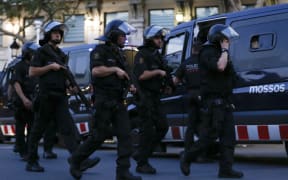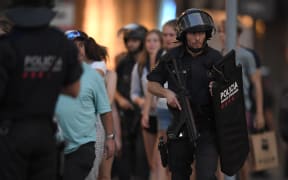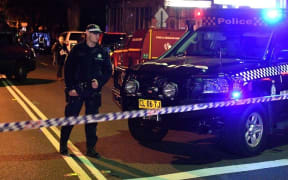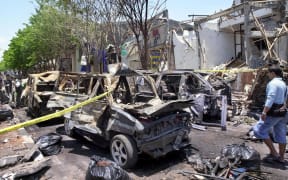Analysis - Recent terror attacks in Europe appear to mark a strategic shift towards crude, bloody and seemingly random public assaults.
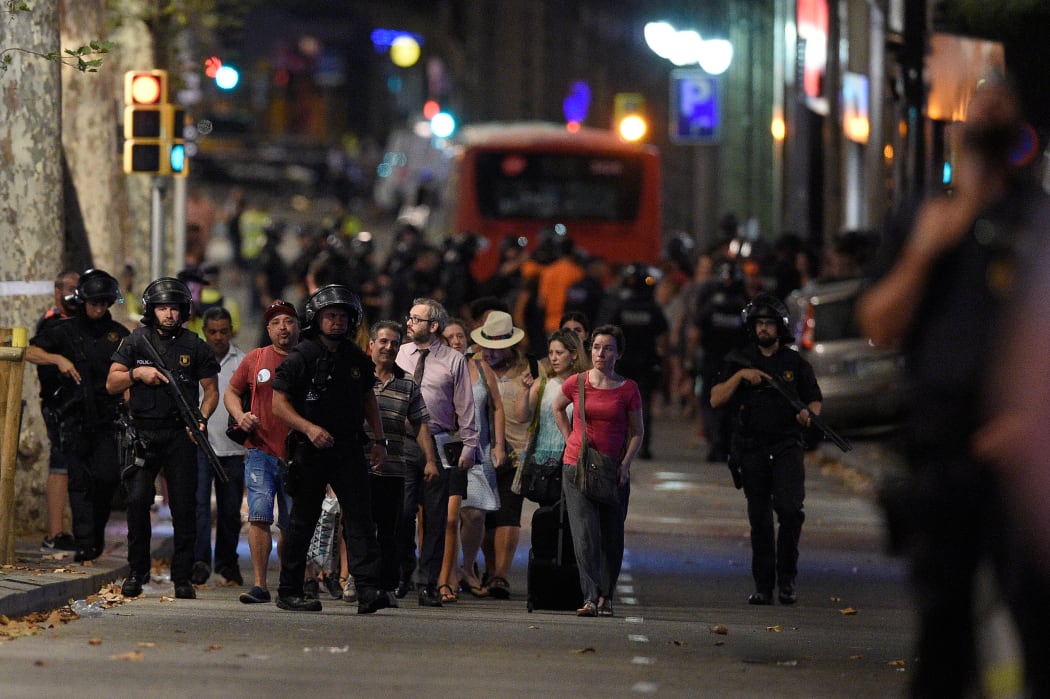
Police and pedestrians outside a cordoned off in Barcelona. Photo: AFP
Terrorists have used vehicles, knives or armed gunmen on foot, which has highlighted the vulnerability of the public and security services to these kinds of indiscriminate attacks.
It takes know-how to build a bomb but comparatively little planning or technical input to drive vehicles into crowds seemingly at random.
Islamic State (IS) have claimed responsibility for the van attack on the famous La Rambla street in central Barcelona - a tree-lined pedestrian mall.
Its claim does not necessarily mean the attack was centrally directed by IS, which is a loose collection of groups and militants, some linked to one another, who share an ideology.
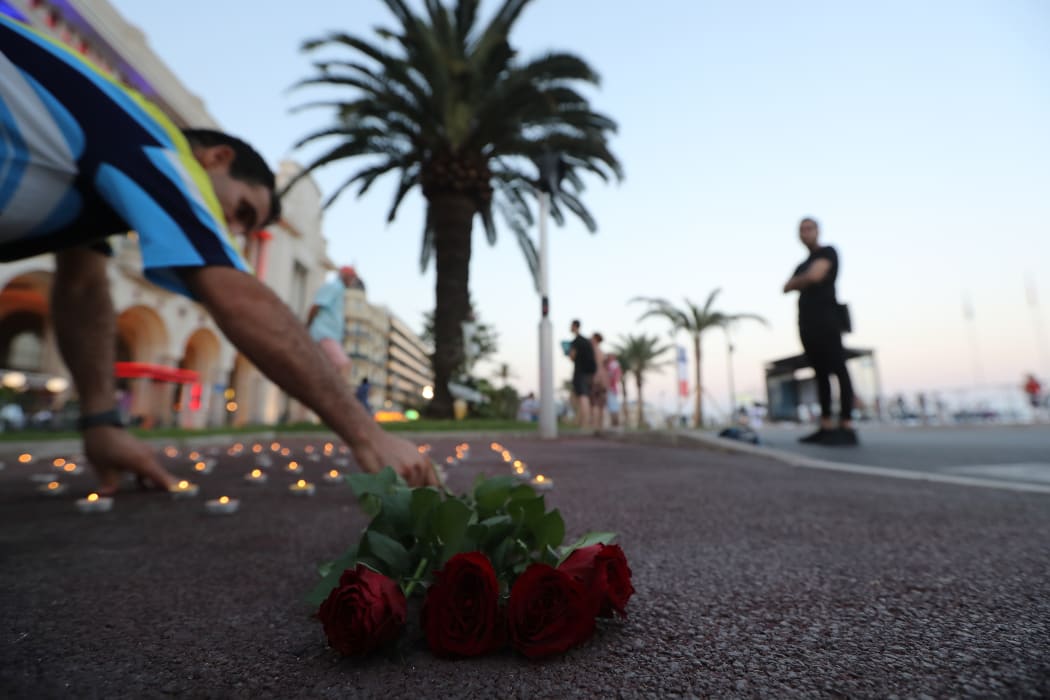
A wreath is laid at the promenade where, in 2016, a truck was driven into crowds celebrating Bastille Day in Nice, France, killing 86 and injuring 458 people. Photo: AFP
Spain has not been hit by a major terrorist attack since March 11, 2004, when a series of co-ordinated, near simultaneous bombs detonated during rush hour on the commuter rail system, killing 192 people and injuring more than 2000.
At the time, the 2004 bombing was the deadliest attack in Europe since the 1988 Lockerbie bombing.
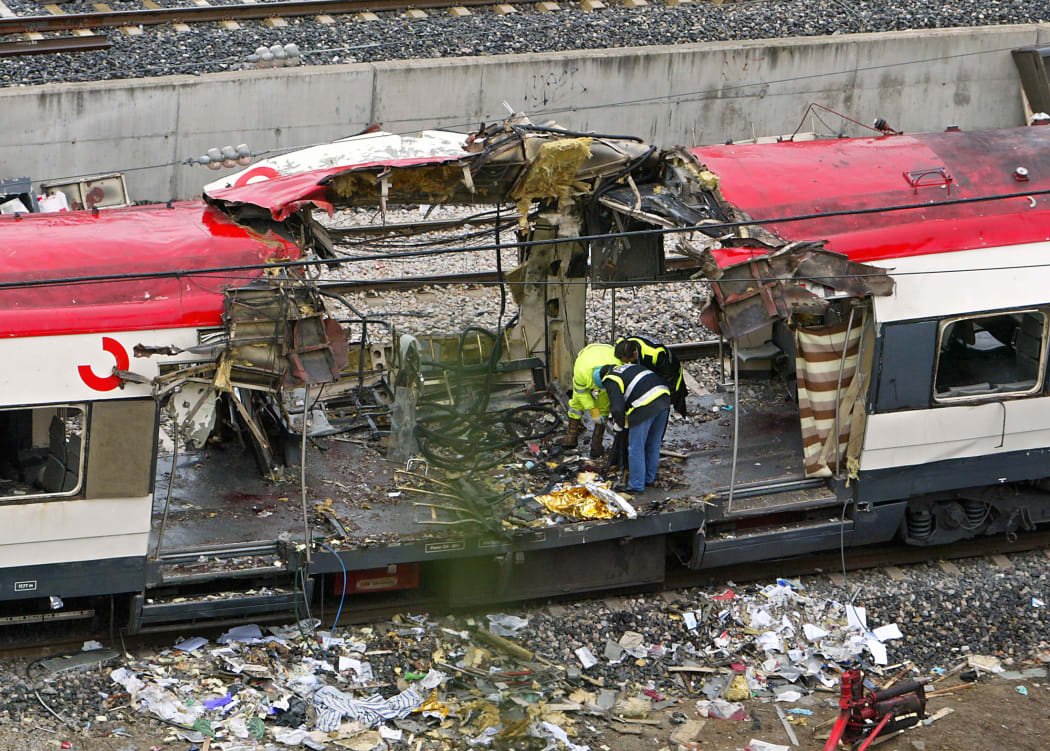
In 2004, the Madrid train attacks were carried out by an al-Qaeda inspired terror cell. Photo: AFP
The following year the London transport system was attacked in the 7 July bombings, another series of co-ordinated attacks targeting commuters in rush hour.
Since then, Islamic militancy has shifted from attacks with an obvious degree of planning to attacks using knives, vehicles, improvised explosives, or armed perpetrators on foot.
This change has raised threat levels and prompted municipal authorities to introduce extra security.
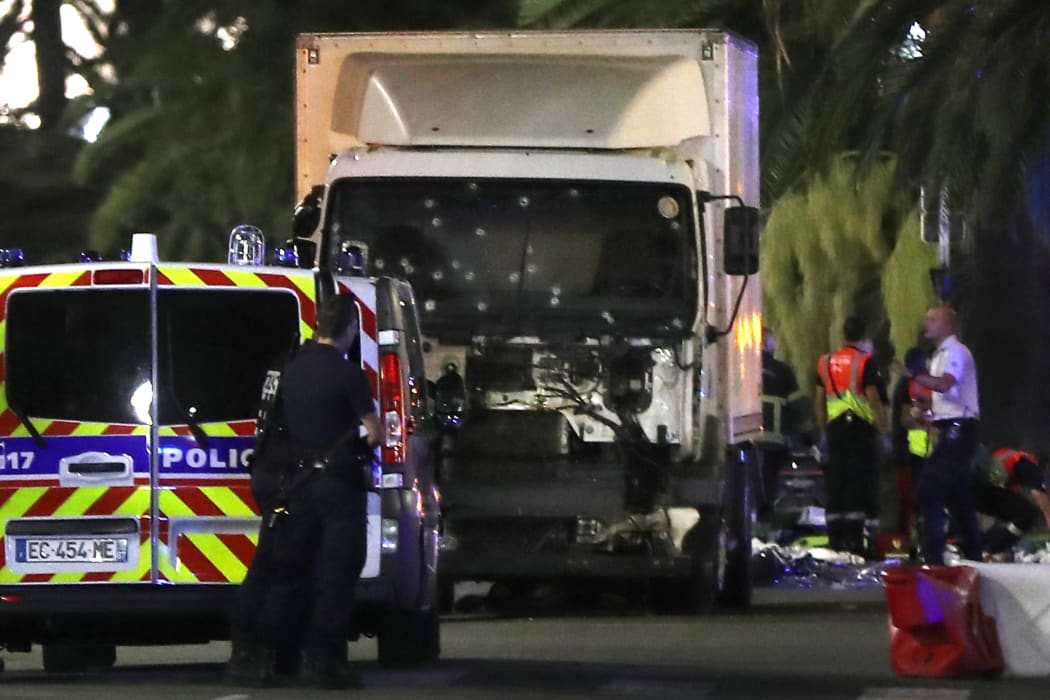
A truck ploughed into a crowd watching a Bastille Day fireworks display in the southern French resort of Nice, last year. Photo: AFP
In an analysis of the attack on London bridge earlier this year by the RAND Corporation, senior adviser Brian Jenkins said attacks with vehicles have increased but they were not new.
''A succession of attacks without central direction suggests that one attack is inspiring the next. One objective of terrorism is to encourage others to action. The Manchester bombing required planning and preparation.
''The Westminster and London Bridge attacks could have been far more spontaneous. The challenge for authorities is not whether they can dismantle a gang, but determining how many individuals are teetering on the edge of violence and how they can be dissuaded from going jihad.''
He described the tendency of such attacks, on concert arenas, transport networks, markets, bars and cafes, as ''pure'' terrorism.
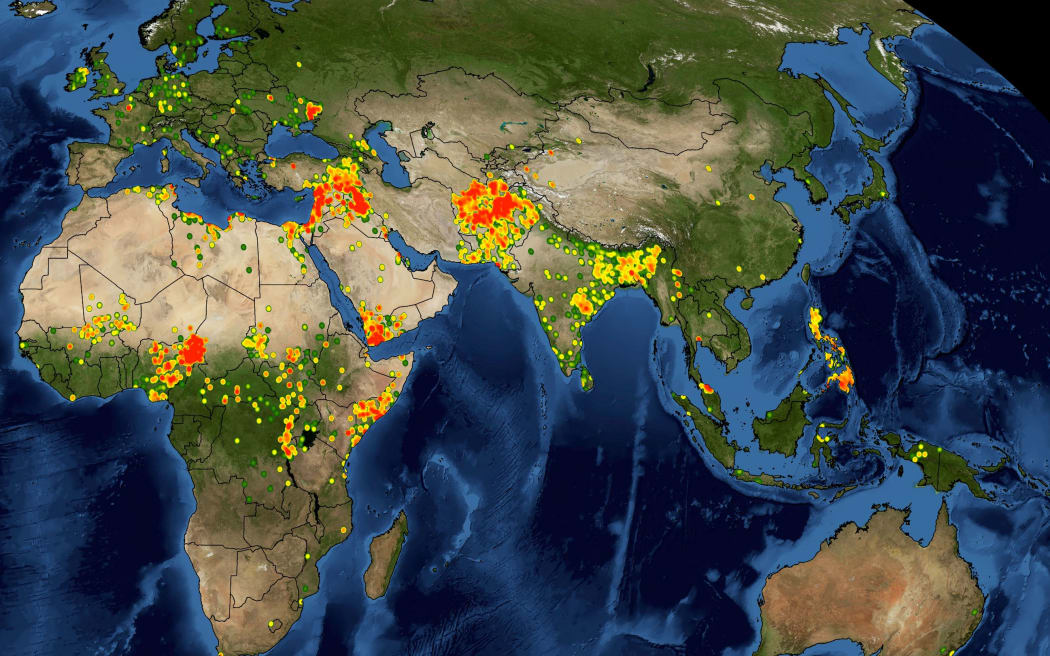
Terrorist attacks in 2015. Photo: Global Terrorism Database
"Terrorists have always preferred to attack unprotected targets although they traditionally seek venues that offer some symbolic value. That is changing."
There have been attacks in many European countries but, globally, the highest risk from a terror attack is in the Middle East and Africa.
After the Madrid attacks, the Spanish authorities invested in counter-terrorism intelligence and in the years after 2004 the authorities prevented a number of assaults.
Europol formed an all-of-Europe counter-terrorism centre last year and its 2017 report on the terrorism threat said there were 142 attacks in 2016, including 10 in Spain.
''Of the 142 attacks, less than half were completed.
"Nearly all reported fatalities and most of the casualties were the result of jihadist terrorist attacks,'' the report said.
After 9/11, the attacks by al-Qaeda, or individuals and groups inspired by them, broadly targeted developed countries who supported - directly or indirectly - military interventions in Iraq and Afghanistan. Now, with the rise of jihadi militancy, the style of attacks has changed, and the cells and networks of terrorists, or would-be terrorists, represent a related yet broader kind of terrorist threat.
A selection of deadly attacks in western Europe
- 17 August 2017 - A van ploughs into crowds in the heart of Barcelona, killing at least 13 people, a regional official says, in what police say they are treating as a terrorist attack.
- 3 June - Three attackers ram a van into pedestrians on London Bridge then stab revellers in nearby bars, killing eight people and injuring at least 48. Islamic State says its militants are responsible.
- 22 May - A suicide bomber kills 22 children and adults and wounds 59 at a packed concert hall in Manchester, after a concert by Ariana Grande.
- 7 April - A truck drives into a crowd in a shopping district and crashes into a department store in central Stockholm, killing five people and wounding 15 in what police call a terrorist attack.
- 22 March - An attacker stabs a policeman close to the British parliament in London after a car ploughs into pedestrians on nearby Westminster Bridge. Six people die, including the assailant and the policeman he stabbed, and at least 20 are injured in what police call a "marauding terrorist attack".
- 19 December, 2016 - A truck ploughs into a crowded Christmas market in central Berlin, killing 12 people and injuring 48.
- 26 July, 2016 - Two IS attackers kill a priest with a blade and seriously wound another hostage in a church in northern France before being shot dead by French police.
- 24 July, 2016 - A Syrian man wounds 15 people when he blows himself up outside a music festival in Ansbach in southern Germany. Islamic State claims responsibility.
- 22 July, 2016 - An 18-year-old German-Iranian gunman apparently acting alone kills at least nine people in Munich. The teenager had no Islamist ties but was obsessed with mass killings.
- 18 July, 2016 - A 17-year-old Afghan refugee wielding an axe and a knife attacks passengers on a train in southern Germany, severely wounding four, before being shot dead by police. Islamic State claims responsibility.
- 14 July, 2016 - A gunman drives a heavy truck into a crowd celebrating Bastille Day in the French city of Nice, killing 86 people and injuring scores more in an attack claimed by Islamic State. The attacker is identified as a Tunisian-born Frenchman.
- 22 March, 2016 - Three Islamic State suicide bombers, all Belgian nationals, blow themselves up at Brussels airport and in a metro train in the Belgian capital, killing 32 people. Police find links with attacks in Paris the previous November.
- 13 Nov. 13, 2015 - Paris hit by multiple, near simultaneous gun-and-bomb attacks on entertainment sites around the city, in which 130 people die and 368 are wounded. Islamic State claims responsibility.
- RNZ / Reuters
